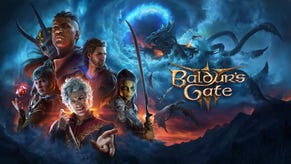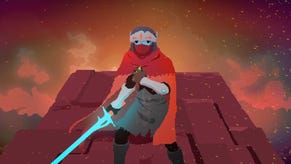Why localisation is a vital part of games writing
A LudoNarraCon panel looked at the links between writing and localisation, and the impact translation has on world building
During LudoNarraCon 2020, a panel featuring experienced localisers from around the globe explored the relationship between localisation and writing, and how translators can (and should) be seen as another link in the writing chain. The closer these two aspects work together, the better your game's localisation will be, ultimately improving its chances to perform well abroad.
Localisation remains an underestimated field, with some developers seeing it as a simple work of translation thrown in at the end of the development cycle.
But it's worth noting that "translation" is never a "simple work" to start with. Even a small text can require hours of effort, as the tone and atmosphere need to be properly conveyed in addition to the actual words. That effort is multiplied by ten when slang is involved, or a specific cultural reference is added. Add technical boundaries to the mix due to the medium, and you can start understanding why localisation is a much more difficult endeavour than most people think.
IfJuggling cultural and language specifics is a challenge, and localisation can result in important changes in a game's world. This excellent LudoNarraCon talk explored how "narrative games evolve real life cultures through localisation" featuring contributions from Fabio "Kenobit" Bortolotti, Anthony Jauneaud, Vladimir Konoplitsky, and Natalia Nesterova.
So whether you're a localiser only starting in the industry, a young studio trying to navigate the tumultuous waters of localisation, or a veteran writer wanting to be more hands-on in the process, this article is for you.
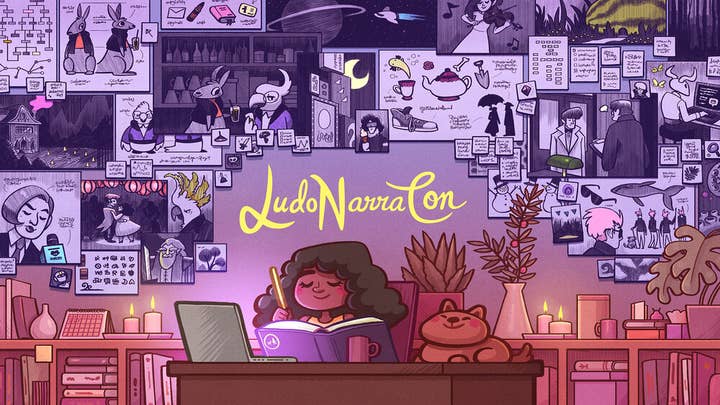
What is the criteria of a good translation?
One of the topics touched upon by the panellists was the underlying principles of good translation in games. This was first raised by Riotloc's Vladimir Konoplitsky, a localisation veteran who's been working in the industry for 13 years. Should localisers adapt the content more precisely so it fits the target audience, or should it remain true to the original?
"The example that comes to my mind is we have many translations for the Lord of the Rings in Russian for example," he said, highlighting something that applies to many countries outside of Russia, and is often a source of controversy among Tolkien fans. "One of the most famous one is a very beautiful translation that sounds absolutely like a Russian folklore tale. It doesn't sound at all like something written in English, by an English writer, about their folklore. It has names translated and adapted so they sound like Russian-style folklore names. It has very poetic wording, typical for old tales.
"Should the translator convey the original style even if it won't be as understood in the country?"Vladimir Konoplitsky
"It's still controversial -- there are people who love it and there are people who hate it. So what should the translator do? Should they adapt the creation, its style, its characters, to something closer to their community, to their culture? Or should they be [truer to] the original, and convey the original style even if it won't be as understood in the country?"
A good example in games would be Death Stranding -- or any Hideo Kojima game really. Do you translate the characters' names, which all have a meaning, or does Deadman remain Deadman in every language? For the French version, for instance, the names were kept in English. There is no direct answer to whether or not this is the right approach -- it has to be tailored for each project.
"I think that really depends on your target audience," Russian localisation expert Natalia Nesterova said. "For The Lord of the Rings, it's a fairy tale, many kids and teenagers love it, and perhaps that's what the translator had in mind. If you translate a book on military history, you don't have to adapt it to make it like it was written in your language, because you're obviously translating it for someone who understands the origins.
"The basic idea here is to understand your target audience, listen to them in the first place. Even within a nationality there are different groups of people. You have to know who you're writing for."
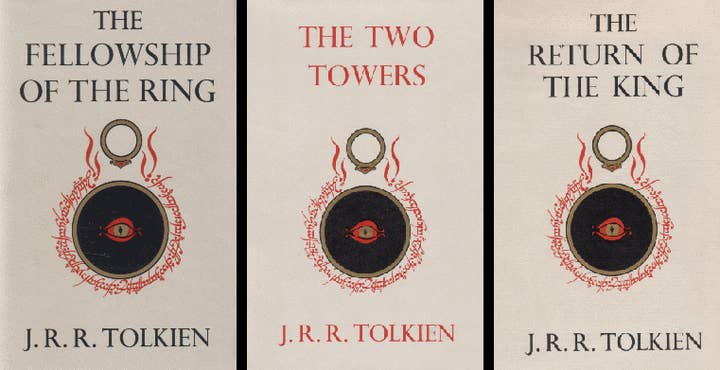
Full localisation can be excellent if done right, with Nesterova saying that her favourite Lord of the Rings translation is actually heavily adapted for Russia. Not all the panellists agreed though, as this can be seen as a dated practice. In recent Lord of the Rings translations in French, for example, translators have moved away from adapting names.
"The thing is, if that's a translation made in 2020, that's a big no-no," said localisation veteran Fabio "Kenobit" Bortolotti. "But maybe in 1970 or in 1960 without the internet, that might have been a very understandable choice. That might not be the best localisation solution, but you can do a hell of a job if you do it right."
"The best things happen when the translator is able to work directly with the actual writer"Fabio Bortolotti
The best way to approach this is to work closely with the writer of the original script so they can tell you what they think makes more sense in their context, and analyse your target market to see what they usually prefer.
"In my experience, the best things happen when the translator is able to work directly, or at least with a very close connection, to the actual writer," Bortolotti continued. "There is maybe 80% of any translation that you can do on your own as a translator because there is nothing ambiguous and you know exactly what's going on.
"But there is a 20% where you need an input from the writer, either to understand exactly what's going on or you have a very difficult [part] -- maybe a pun or something that does not translate exactly into your target language. You need to be able to talk to whoever wrote the text in order to better represent their vision.
"Whenever the developers are willing to actually not only work with the translators, but also share what's important about their idea of narration, you as a translator can decide on priorities, on a style, and you can then find better questions to ask them."

How to approach things that don't exist in your target language
Localisation is riddled with challenges -- how close you remain to the original is only the tip of the iceberg. As Bortolotti touched upon, there are words, expressions, and even entire concepts that will possibly not exist in your target language. A common example is gender neutral pronouns.
While English has the very useful "they", lots of Romance languages such as French, Spanish and Italian simply don't have this option. French and Spanish alternatives to "they" have been invented in recent years, but only used marginally as far as French is concerned.
In Italian, Bortolotti explained that he also had to find an alternative for his recent work on Chance Agency's Neo Cab, highlighting the necessity for localisers to come up with concepts for words that don't exist.
"We were able to turn what looked like an impossible challenge into a world-building occasion"Fabio Bortolotti
"In case of ambiguity, in Italian, you usually just default to the male [pronoun]. This would have been a huge betrayal of [Neo Cab's] vision. But because the game is set in a kind of near future, we could imagine at least that, in Italian, in 20 years, something like gender neutral pronouns will be invented and used. And so we tried to come up with a possible solution and we wrote a very quick paper on the gender nature of the Italian language and what our potential solution [was].
"We asked the writers: would this work for you? And they said yes. They just had to implement an extra character in the game -- which is the 'schwa', the upside down e [ɘ] -- and it worked. By working with the developers, we were able to turn what looked like an impossible challenge into a world-building occasion. It was not an invention of the translators, it was a solution found together with the developers and the writers."
This led to a wider debate about whether or not localisers should speak up about in-game topics that are sensitive in their own countries. Is it their responsibility to hide things that are not adapted to their local audience, or should they use this opportunity to push for some ideas to be more widely accepted?
"Until a few years ago, for example, if you wanted to publish a game physically in Russia and you had sexuality as a topic in it, it could be just banned by the government," Konoplitsky said. "I remember playing Magic: The Gathering, and there were two male characters [on the cards] and the caption in the English versions said they were in love. In Russia, it was replaced with friendship, like they're very [close] friends. And I can imagine that maybe the local publishers were afraid that if they didn't smooth this, they would have backlash, because some countries are less developed in certain topics."
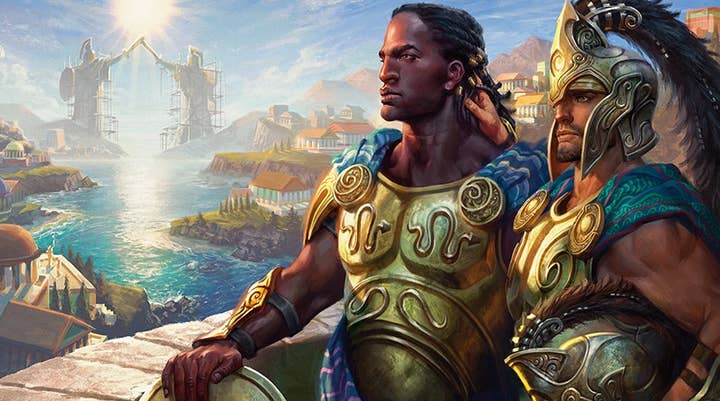
This debate was largely explored by Kate Edwards in her recent GDC talk about culturalisation, which we covered on the GamesIndustry.biz Academy. She explained why culturalisation matters as much as localisation and how to navigate sensitive themes so your game can reach wider markets.
This approach does change from country to country, and Bortolottinoted how "privileged" he is that he's never had to worry about it.
"I feel a huge responsibility on representing whatever the view of the writer is"Fabio Bortolotti
"I feel a huge responsibility on representing whatever the view of the writer is, and sometimes it happens that it might touch upon a [sensitive] topic, but I don't really think that's your choice [as a localiser], unless it's something very dangerous," he continued. "But it never happened to me. I think you have just a responsibility to represent the game as a work of art and so not to cut any corners or even smooth anything."
Nesterova pointed out that she's in a different position as she translates games from Russian to English. Then, from her English, the games are translated into various European and Asian languages
"So my colleagues base their translations on my work," she explained. "So I just don't have the right to cut any corners. I leave comments for them, I explain things in the comments, but I just can't cut anything."
How to approach peculiar lexicons and accents
Another aspect of localisation is properly conveying the speech of a specific era, or a specific region. Local accents are often associated with specific characteristics -- meaning that choosing the accent of a character in the original language actually has consequences on how this character is going to be perceived. So how do you convey the same meaning when you can't use the same accent or lexicon in your target language?
"[If a character] has very peculiar slang and you replace it with the local slang, you just will get another character"Vladimir Konoplitsky
"[If a character] has very peculiar slang that is typical for this very country and this very age, and if you replace it with the local slang, you just will get another character in the end, just from the way they speak," Konoplitsky said.
Which is why changes need to be made across the board, and not only on one aspect of the translation.
"You don't change this isolated character; you change the whole environment, the whole world of the [game], as this very character should fit naturally in the thing you adapt," Nesterova pointed out.
Bortolotti had a specific example on this topic, from when he worked on the translation of Lucas Pope's Return of the Obra Dinn, highlighting just how much work goes into localisation sometimes.
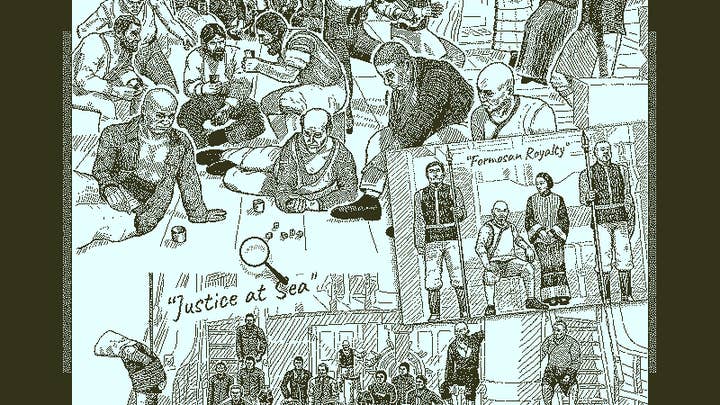
"That's a game set in a very specific time, the East India company, in a very specific setting, which is a sailboat. And so you had language from an old era, and a very specific language -- the language of the sailors. And that was a huge challenge, because you can't just use the modern language and you still need to be understandable.
"So the thing you do is you try to translate it the way it would have been written if it was written back in the day, but in your target language. We read books about the time, and read the Italian translations of books around that time. Then you also have to start doing some research, if you want to get a job done right, about the very specific language of [sailors].
"It took me a full week to do the work I usually could have done in an afternoon. It's very helpful to have a team to bounce your ideas [off], because sometimes you find the solution but it's in your head. So you need to bounce the idea off someone else to see: do you get what I mean here? Is this easy to understand? And of course, it was very important to be able to ask very specific questions to the writer. You're not just changing, as Nate was saying, the character, you're just setting the tone for the whole story."

You need to go the extra mile to get the tone right because, if you choose the wrong accent for instance, you may end up with a character that is different from the author's intention. Narrative designer, writer and localisation coordinator Anthony Jauneaud noticed this about some translations of Japanese games into French.
"People from Osaka usually are a bit bullish -- there's something very different in their speech [compared to] other Japanese cities," he explained. "And for some reason, for a Dynasty Warriors game on GameCube which was called Mystic Heroes, they translated the characters speaking with the Osaka [dialect] with a very thick south of France accent, which is just hilarious because that accent is very rare and it's usually seen as a dumb accent."
Most of the panelists agreed that accents in general work well in humorous, cartoonish settings -- such as the janitor in the Simpsons, Groundskeeper Willie, who has a different accent depending on which country you're watching -- but otherwise should be avoided as they can be very difficult to pull off.
However, in a setting where the narrative doesn't reveal a lot of details about the characters, accents can be a good way to add a bit more depth and say a bit more about them without adding words.
Overall, the approach to accents is different from country to country, and the more you know about your target language and culture, the more you'll know what approach fits best. Accents from the different parts of the US are widely accepted for instance, while you will very rarely see local accents in any type of French media.
"I usually like to just translate everything in Italian, which is my target language, and communicate all of the cultural connotations with a choice of words more than with the accent," said Bortolotti. "Also, as a translator you're not an actor, and you have no direct control on how that accent will actually play out, so it's always kind of a gamble.
"My takeaway from this is that whenever the developers really think about localisation and don't think of it as an afterthought, and actually put some effort to communicate and work with the translators, the results can be so much better and more fulfilling for everybody."
The GamesIndustry.biz Academy guides to making games cover a wide range of topics, from finding the right game engine to applying for Video Games Tax Relief, to the best practices and design principles of VR development, or how to improve your world building. Have a browse.

